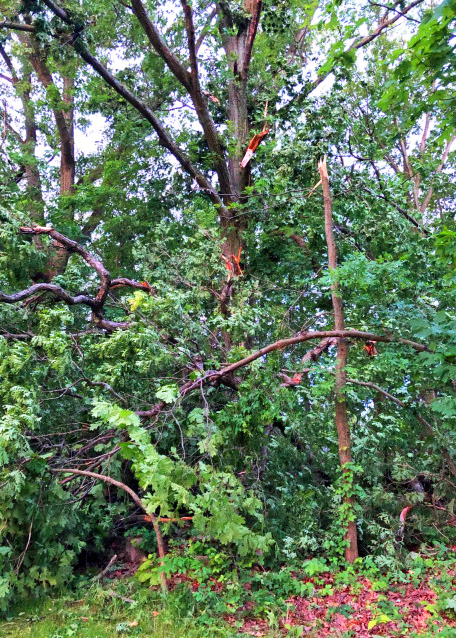2017-12-17
【Aiden in English】 Higher education should not be free, as the average quality would decrease, and the system would have too many holes to be viable. From the start, paying for higher education equaled a higher quality of education. According to CollegeData, private schools, on average, cost $34,000, compared to the public school average of $25,000. As common knowledge, private schools are generally superior in terms of technology and teaching compared to public educational systems. Project a free education system onto the existing one. Private schools remain at the top of the education system, still demanding high fees, while public schools continue to decline in the quality of education. A 2010 study conducted by NerdWallet showed that, on average, Public school grads earned just 80% of what private school grads earned. This stark contrast highlights the significant differences between private and public schools and their respective impacts. If the higher education system becomes free, the gap between private and public institutions will continue to grow. What would be the point of having free education if most people still prefer to pay for a good college? Although the results are debatable, free education may have a positive impact on the economy. Perhaps the government can cover the cost of college through a distribution system to significantly decrease the price. It sounds like a good plan, but it is not viable. Alone, the system is unstable. Never before has a country with such a large economy and internal debt, combined with a large population, implemented free education. Agreed, the result can very well benefit the country, but at what risk and what cost? With college prices continuing to rise, where would the money come from? Raising taxes is unpopular. The federal budget is limited. With these uncertainties, is it safe to provide free education? Higher education should not be free, as the average quality would decrease, and the system would have too many holes to be viable. From the start, paying for higher education equaled a higher quality of education. According to CollegeData, private schools, on average, cost $34,000, compared to the public school average of $25,000. As common knowledge, private schools are generally superior in terms of technology and teaching compared to public educational systems. Project a free education system onto the existing one. Private schools remain at the top of the education system, still demanding high fees, while public schools continue to decline in the quality of education. A 2010 study conducted by NerdWallet showed that, on average, "Public school grads earned just 80% of what private school grads earned". This stark contrast highlights the significant differences between private and public schools and their respective impacts. If the higher education system becomes free, the gap between private and public institutions will continue to grow. What would be the point of having free education if most people still prefer to pay for a good college? Although the results are debatable, free education may have a positive impact on the economy. Perhaps the government can cover the cost of college through a distribution system to significantly decrease the price. It sounds like a good plan, but it is not viable. Alone, the system is unstable. Never before has a country with such a large economy and internal debt, combined with a large population, implemented free education. Agreed, the result can very well benefit the country, but at what risk and what cost? With college prices continuing to rise, where would the money come from? Raising taxes is unpopular. The federal budget is limited. With these uncertainties, is it safe to provide free education? References:
1. US Department of Education "What's the Price Tag for a College Education?" CollegeData, 2. www.collegedata.com/cs/content/content_payarticle_tmpl.jhtml?articleId=10064. 3. Wei, Stephanie. “How Your College Choice Affects Your Career.” NerdWallet, 3. www.nerdwallet.com/blog/nerdscholar/college-and-career-study/. 【紅霞譯文】 鑑於教育水平日趨下降,體制本身漏洞百出,高等教育不該免費。
起先,高校學費用以提供良好教育,根據大學數據庫信息顯示,私立大學年均學費38,000美元,而公校則為25,000美元。眾所周知,在技術師資方面私校要比公校實力雄厚,免費教育體制正是基於這種現狀提出來的。私校即使在各方面占據領先地位,但仍然不堪重負,更不要說公校教學質量一直下滑。2010年美國個人財務網站“書生錢包”研究表明:一般情況下,“公校畢業生僅有私校畢業生所掙工資的80%”,明確指出私校與公校不同及其社會影響,一旦高校系統實施免費教育,私校與公校之間的差距勢必加劇,假如多數國民情願為名校買單,那麼免費教育的意義何在?
雖然眾說紛紜,免費教育可能對經濟產生積極影響,興許政府能夠通過發放補貼變相降低學費,乍聽起來蠻好,但並非可行,況且教育系統本身不太穩定,再說美國財政赤字嚴重,加之人口眾多,歷史上又從未推行過免費教育。沒錯,免費教育有益於整個國家,但是風險怎樣?機率如何?隨着大學費用持續增長,這筆錢該從哪出?提高稅收不得人心,可是聯邦預算極其有限,針對這些未知因素,提供免費教育靠譜嗎? 參考資料: 1. 美國教育部 2. “大學教育標價多少?” 大學數據庫網址: www.collegedata.com/cs/content/content_payarticle_tmpl.jhtml?articleId=10064 3. 韋筱潔: “你的大學選擇如何影響你的職業生涯” 書生錢包網址: www.nerdwallet.com/blog/nerdscholar/college-and-career-study/ Today in History(歷史上的今天): 2014: Andrea Bocelli Concert, NYC(紐約安德烈波切利音樂會) 2014: A Life in NYC-2(浪跡紐約之二)
2014: A Life in NYC-1(浪跡紐約之一) 2013: Hindu in Mangalore, India(印度門格洛爾印度教寺廟) 2012: Easter Island—Navel of the World, CHL(智利復活節島—地球的肚臍) 2009: 新西蘭天籟之聲(Sounds of Heaven, NZ)

Derecho Ruin (德雷喬“直線”風暴後殘跡)
Crosslinks(相關博文): 8th Grade Argumentative─For the Flavor(初三議論文─利益) 7th Grade Argumentative Crutches (初二議論文─拐杖) 6th Grade Argumentative─How to Wake up for School(初一議論文如何早起上學) 6th Grade Argumentative─Homework(初一議論文─論家庭作業) 5th Grade Argumentative: DARE(五年級論述抵制濫用毒品教育) 5th Grade Argumentative—Boys & Girls Co-Team(五年級議論文—論男女同隊) 2009: 算術─孩子的花銷(Math on Raising Kids) 9th Grade(高中一年級) |
